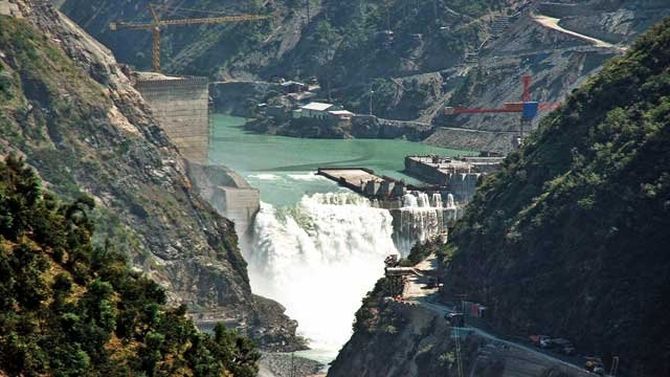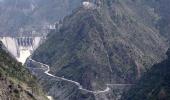India on Thursday said it cannot be compelled to participate in "illegal" proceedings at the Permanent Court of Arbitration over the Kishenganga and Ratle hydropower projects in Kashmir after The Hague-based tribunal ruled that it has the "competence" to consider the dispute between New Delhi and Islamabad on the matter.

India has been maintaining that it will not join the Pakistan-initiated proceedings at the Permanent Court of Arbitration as the dispute is being already examined by a neutral expert under the framework of the Indus Waters Treaty.
"India cannot be compelled to recognise or participate in illegal and parallel proceedings not envisaged by the treaty," external affairs ministry spokesperson Arindam Bagchi said.
In January, India issued a notice to Pakistan seeking a review and modification of the Indus Waters Treaty in view of Islamabad's "intransigence" to comply with the dispute redressal mechanism of the pact.
The pact, brokered by the World Bank, was inked in 1960 for matters relating to cross-border rivers.
India considers the start of the two concurrent processes to resolve the dispute violates the provision of the three-step graded mechanism prescribed in the pact.
Bagchi said India's consistent and principled position has been that the constitution of the so-called court of arbitration is in contravention of the provisions of the Indus Waters Treaty.
"A neutral expert is already seized of the differences pertaining to the Kishenganga and Ratle projects. The neutral expert proceedings are the only treaty-consistent proceedings at this juncture. The treaty does not provide for parallel proceedings on the same set of issues," Bagchi said in his weekly media briefing.
He said India has been participating in the "treaty-consistent" neutral expert proceedings.
The last meeting of the neutral expert took place at The Hague on February 27 and 28. The next meeting is scheduled to be held in September.
"The Government of India has been in talks with the government of Pakistan regarding the modification of the Indus Waters Treaty under Article XII (3) of the treaty. This recent development only underlines why such modification is so necessary," Bagchi said.
A statement from the Permanent Court of Arbitration said the tribunal considered objections to the competence of the court raised by India through its communications with the World Bank.
The World Bank is also a signatory to the Indus Water Treaty.
"In a unanimous decision, which is binding on the parties and without appeal, the court rejected each of the objections raised by India and determined that the court is competent to consider and determine the disputes set forth in Pakistan's request for arbitration," The Hague-based court said.
"In the next phase, the court will address certain questions concerning the overall interpretation and application of the [Indus Waters] Treaty's provisions on hydro-electric project design and operation, as well as the legal effect of past decisions of dispute resolution bodies under the treaty," it said in a statement.










 © 2025
© 2025